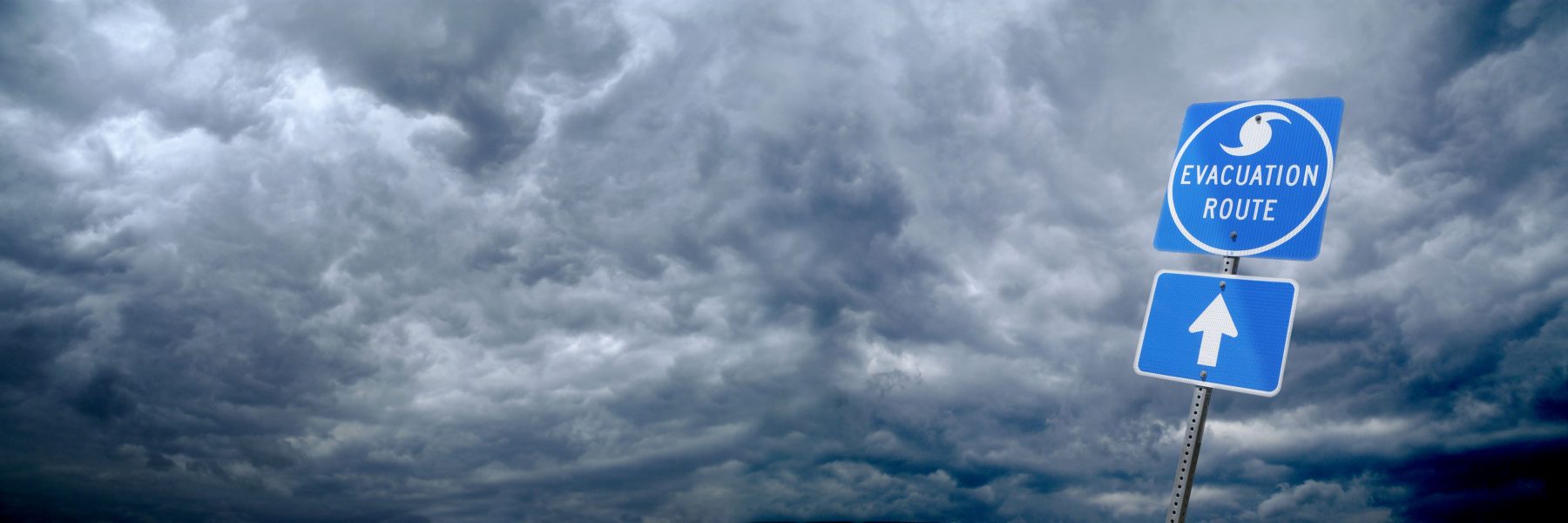Most homeowners who live in the southeast understand that the threat of a hurricane can be imminent from June through December. Knowing what to do before, during and after a potentially catastrophic event such as a hurricane can make a big difference when it comes to protecting your home.
Before Hurricane Season Begins
- Plan an escape route.
- Have a stockpile of emergency supplies on hand (drinking water, canned goods, non-perishable foods, manual can opener, flashlights, batteries, candles, first aid kit, essential medications, matches in waterproof containers, portable radio, etc.)
- Develop an emergency communication plan in case of separation from loved ones.
- Hurricane shutters tend to provide the best protection. However, homeowners can also use marine plywood panels cut to fit into their windows. Homeowners are advised to pre-drill holes every 18 inches for screws and mark which board fits which window.
- Keep trees free of weak or dead branches.
- Have a video or photographic inventory of possessions stored in a safe place away from the home. If the home is damaged, this inventory will be invaluable in settling the claim.
- Review your homeowners’ insurance policy to ensure it is adequate. Remember, flooding is generally not covered by a homeowner’s policy, so it is advised to speak to an insurance agency if interested in flood insurance.
During A Hurricane Watch And Warning
- Pay close attention to progress reports.
- Protect windows.
- Check emergency supplies, ensure there is a full tank of gas in the car, review the evacuation plan.
- Bring outdoor furniture inside. Anchor items that cannot be brought in.
- In case of the loss of power, homeowners are encouraged to set their freezer and refrigerator at the highest setting. (If power is lost, turn off major appliances to avoid power surge.)
- If the home is located in a surge zone, elevate furniture to protect it.
- Store valuables and papers in a watertight container at the highest level of the home.
- If evacuation is necessary, unplug appliances, turn off electricity and the main water valve and leave as quickly as possible.
After The Hurricane
- If evacuation was necessary, homeowners should return home only after authorities say that it is safe. Stay away from flooded roads and washed-out bridges.
- Avoid dangling power lines and report them immediately to the power company, police or fire department.
- Enter the home cautiously. Sometimes snakes, insects and animals are driven to higher ground by flood water.
- Open windows and doors to ventilate and dry the home.
- If the home has been damaged, check for gas leaks (open a window, leave and call the gas company if one is found), obvious electrical problems as well as sewer and water line damage.
- Take pictures of the damage – inside and out. These pictures will be critical for insurance purposes.
Protecting Property. Ensuring Peace of Mind.
Become a member of the St. Johns Insurance family.

